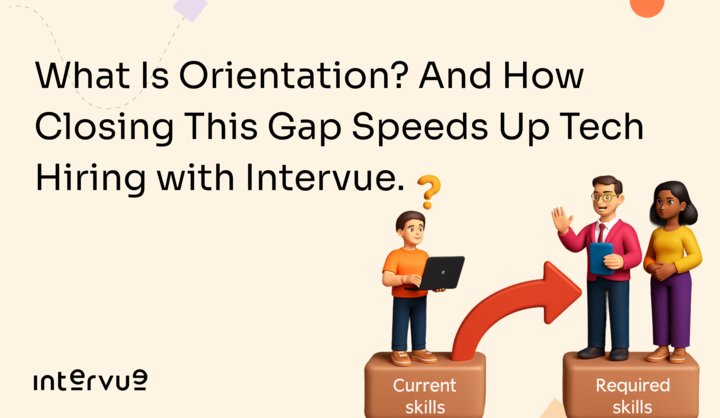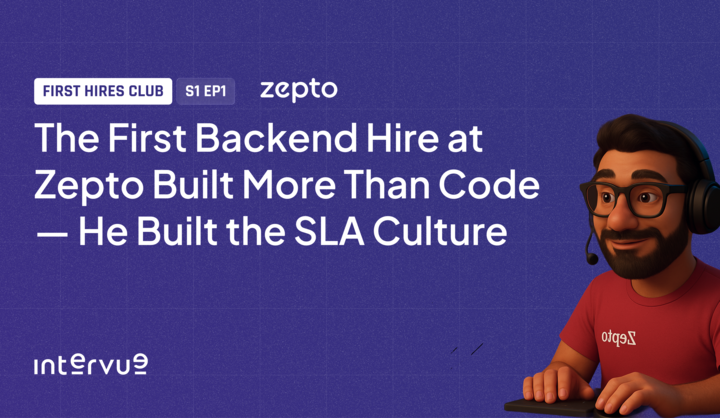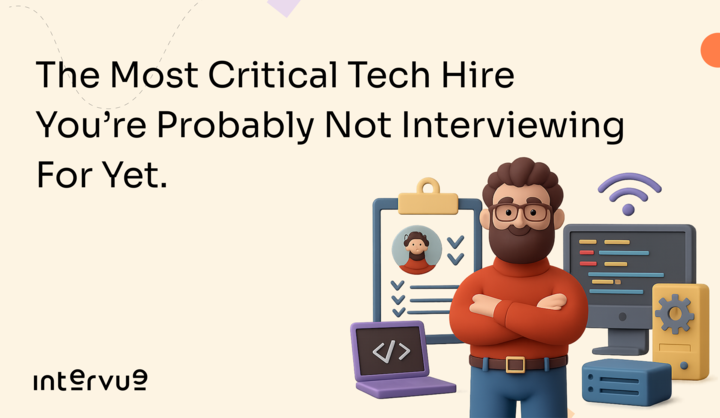What the TCS Layoffs Tell Us About the Future of Tech Hiring in India

Let’s address the elephant in the (virtual) room, Tata Consultancy Services (TCS), India’s largest IT services firm, just announced it’s letting go of 12,000 employees in FY26. That’s 2% of its workforce, gone. And the tech hiring ecosystem is buzzing with questions: What does this mean for the industry? Is this the new normal? Is AI replacing jobs?
At Intervue, we’ve spent years in the trenches of tech hiring, helping companies build strong engineering teams with skill-aligned, SOP-driven interviews. So, when a giant like TCS trims this many jobs, we sit up and look beyond the headlines.
Not Just a Layoff But A Signal of Systemic Shift
TCS says these layoffs aren’t about cost-cutting. Instead, they’re pointing to skill mismatches and deployment issues. In other words, they had thousands of people on the bench; mid and senior-level folks with 10–20 years of experience, who couldn’t be deployed on projects because their skills no longer matched what the market needed.
That’s not just a TCS problem. It’s a wake-up call to the entire industry. In 2025 so far, tech companies have cut over 100,000 jobs globally, with major players like Intel, Microsoft, Meta, Amazon, Google, and Cisco leading the way. Over 18,000 roles were eliminated in just the first two months of 2025 across 74 companies.
We’re not in the era of ‘more headcount = more productivity’ anymore. We’re now in the era of “do we have the right skills at the right time?”
And this is where hiring smarter not harder becomes critical.
The Skills Mismatch is Real (and Preventable)
What happened at TCS isn’t because those 12,000 professionals were bad at their jobs. Many were loyal veterans. The issue is that their skills stopped evolving at the pace the industry demanded.
This raises a crucial hiring question for every tech org:“Are we hiring for what we need now or what we’ll need two years from now?”
At Intervue, we often see hiring teams make reactive decisions, hire fast, patch the gap, move on. But this leads to fragile teams that don’t scale well or adapt when tech shifts. Instead, we advocate for structured interviews that evaluate not just current competence, but coachability, systems thinking, and alignment with future-ready tech stacks.
That’s how you avoid building a bench full of brilliant-but-deployable-no-more engineers.
AI is Not Replacing Jobs but Redefining Them
TCS CEO K Krithivasan has been clear: these layoffs aren’t about cost-cutting or AI-driven productivity. They’re happening because the company couldn’t deploy people effectively.
Translation: they hired for roles they no longer need or for skills that haven’t kept up.
This is exactly why structured, role-aligned interviews matter. At Intervue, we’ve helped dozens of tech-first orgs avoid these pitfalls by evaluating for future-ready skills and system-level thinking—not just “can they code?”, but “can they scale a system under pressure?”
So, Where Do We Go From Here?
If you're building or scaling a tech team today, here’s what we at Intervue would say:
- Hire with foresight: Don’t just fill today’s need, evaluate for adaptability and future tech fit.
- Prioritize structured interviews: Skill mismatches are expensive. A good interview process saves you from tomorrow’s layoffs.
- Stay human: Even in tough calls, communicate with respect and clarity. Culture doesn’t stop when someone leaves.
Final Thoughts
The TCS layoffs are not just about one company’s internal restructuring. They’re a mirror reflecting the larger shifts in Indian IT, toward leaner, skill-aligned teams, and more accountability in hiring.
At Intervue, we believe the future belongs to companies that hire smart, hire fair, and build tech teams that are ready for change, not afraid of it.
Let’s build that future together.



